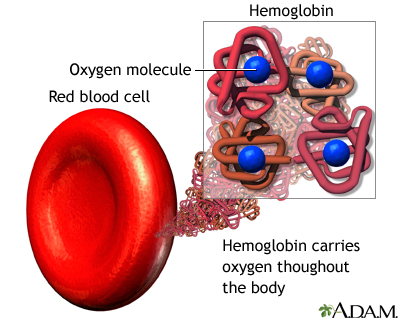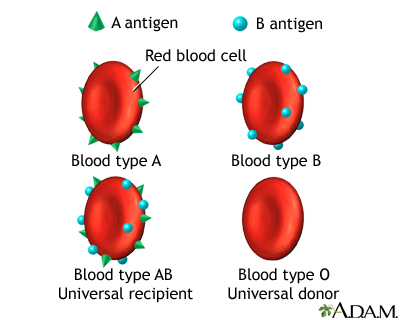| Step 3: Why people choose bloodless medicine |
Traditionally, surgeons and other doctors have used blood transfusions (donated or banked blood, usually from another person) for a variety of medical situations. For example, people would have received blood transfusions if they had lost a great deal of blood during a surgical procedure, childbirth, or a serious injury.

The rationale behind giving blood transfusions has always been to maintain a certain level of hemoglobin in your blood. Hemoglobin is a component of red blood cells, and it is responsible for carrying oxygen throughout your body. Low hemoglobin levels mean that less oxygen is being delivered to your tissues and organs. This has been thought to increase your risk of infection, slow your body's ability to heal, and cause tissue and organ damage.

Proponents of bloodless medicine are re-examining the threshold level of hemoglobin necessary for good health and healing. They believe that patients can do well at lower hemoglobin levels than previously believed safe. And some proponents believe that the risks of a blood transfusion can, at times, outweigh the risks of low hemoglobin.
Bloodless medicine may be chosen for a variety of reasons. Some of the most common are described below.
Religious convictions
If you belong to certain religious groups, most notably the Jehovah's Witnesses, your religious beliefs may state that you should not accept blood transfusions. Jehovah's Witnesses believe blood "stands for life... has special significance... and should not be misused." Their ethical principles state that blood should not be removed from the body and stored, nor taken in by another person. Therefore, Witnesses do not accept blood products containing plasma, red blood cells, white blood cells, and platelets -- which are sometimes referred to as major blood fractions.
Clotting factors, albumin, growth factors, and immunoglobulins are sometimes referred to as minor blood fractions. If you are a Jehovah's Witness, whether or not you can accept treatment with a minor blood fraction may be considered an individual "matter of conscience."
 |
|
Concern about infections in the blood supply
In the early 1980s, a number of hemophiliacs contracted HIV through blood transfusions. Since then, public concern about infections transmitted through blood transfusions has increased.

A variety of infectious agents have been discovered in the nation's blood supply, including:
- Hepatitis A, B (in 1 in 200,000 donations), and C (1 in 2 million donations)
- Malaria
- Syphilis
- Cytomegalovirus
- Herpesviruses
- Epstein-Barr virus
- Creutzfeldt-Jacob virus (which causes the human form of "mad cow" disease)
- West Nile virus
- HIV (1 in 2 million donations)
Potential donors can be screened, and donor blood tested and discarded, if found to contain some of these agents.
Still, new agents are regularly discovered in donor blood, requiring that new blood testing and screening procedures be put into place.
Other complications from blood transfusions
While infections are certainly the most "in-the-news" complications, there are other medical risks of receiving blood transfusions. Everybody has a specific blood type, which refers to the biochemical markers located on their red blood cells. If you accidentally receive a transfusion of the wrong blood type, you can have a severe and even life-threatening reaction. Errors in blood typing do sometimes occur, prompting some people to prefer bloodless techniques over traditional transfusion medicine.

Even if you get the right blood type from a donor, you could still undergo an allergic-type reaction to the transfusion because of other factors in the blood.
A dwindling blood supply and rare blood types
As policies to cut down on infectious contamination of donor blood are instituted, more and more people are prohibited from donating. The donor pool continues to shrink, and the nation's blood supply has been steadily declining. Further, the cost of giving blood to patients has increased, due in part to the variety of tests to which donor blood must be subjected. If you have a rare blood type, it may be especially difficult to locate the kind of blood you need -- meaning that bloodless medical techniques may be crucial to your care.
|
Review Date:
6/28/2011 Reviewed By: Todd Gersten, MD, Hematology/Oncology, Palm Beach Cancer Institute, West Palm Beach, FL. Review provided by VeriMed Healthcare Network. Also reviewed by David Zieve, MD, MHA, Medical Director, A.D.A.M., Inc. |
